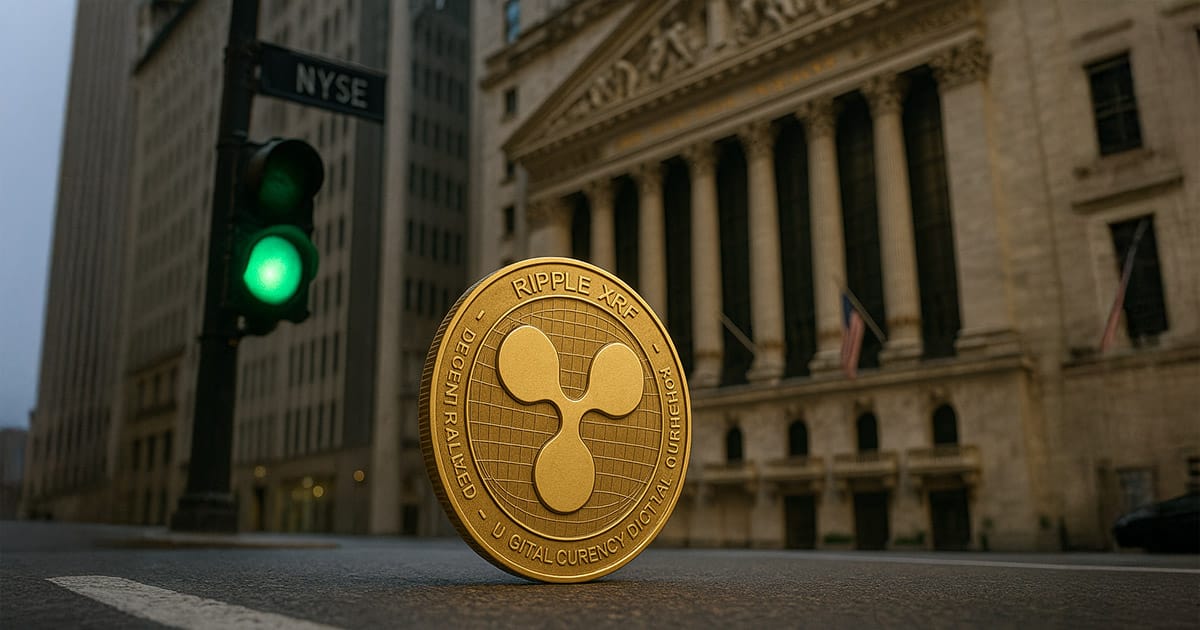
U.S. SEC Approves ProShares XRP Futures ETFs Set to Launch on April 30
The U.S. Securities and Exchange Commission (SEC) has granted approval for ProShares Trust to introduce three new exchange-traded funds (ETFs) based on XRP futures, with the official launch date set for April 30, as indicated by an SEC filing. ProShares initially suggested these ETFs on January 17, shortly before President Donald Trump, known for his supportive stance on cryptocurrencies, took office:
- Ultra XRP ETF, which offers 2x leverage
- Short XRP ETF, designed to provide inverse (-1x) leverage
- Ultra Short XRP ETF, allowing for inverse (-2x) leverage
This marks the second, third, and fourth XRP-focused ETFs to enter the U.S. market. Recently, on April 8, the first XRP futures ETF by Teucrium began trading on the New York Stock Exchange (NYSE) and received a strong reception.
It is crucial to clarify that a futures-based ETF gives investors exposure to the price fluctuations of XRP futures contracts. In simpler terms, ProShares’ ETFs will track XRP’s value via the XRP Index. This approach differs from a spot ETF, which necessitates the acquisition of XRP tokens; instead, a futures XRP ETF enables speculation on XRP’s price movements without needing to actually hold the asset.
ProShares has a separate application for spot XRP ETFs still awaiting SEC approval. In contrast, while the U.S. remains undecided, Hashdex launched the first spot XRP ETF in Brazil earlier this week.
Nonetheless, the launch of these XRP futures ETFs remains significant. They provide a regulated avenue for investors to capitalize on XRP’s price movements, potentially attracting institutional interest.
Impact on XRP price
The approval of the futures ETFs has had a favorable effect on XRP’s price, which increased by 3.5% in the last 24 hours, reaching $2.27 at the time of this report. XRP’s market capitalization currently exceeds $312 billion.
Interestingly, other major cryptocurrencies, with the exception of Bitcoin (which saw a marginal increase of 0.11%), experienced price declines over the same period. This suggests that XRP’s price movement stands out among the top ten cryptocurrencies, witnessing the most considerable gain.
Ripple’s evolving relationship with the SEC
The introduction of XRP-related ETFs in the U.S. is seen as a significant achievement for Ripple, the organization behind XRP. Ripple faced regulatory challenges with the SEC for several years, but that dynamic has shifted since Trump’s presidency and the appointment of Paul Atkins as SEC chairman.
Trump’s pro-crypto stance during his second term, complemented by Atkins’ support as a crypto advocate and former SEC commissioner, marks a stark contrast to previous regulators. During a meeting hosted by the SEC’s Crypto Task Force, Atkins remarked:
“The market indicates that the current framework is in dire need of revision.”
He emphasized that innovation in the crypto space has been hindered for several years due to the SEC’s earlier tactics under Gary Gensler’s leadership.
The SEC’s legal case against Ripple, initiated in 2020, accused the company of breaching securities laws by selling XRP, which the agency claimed was an unregistered security.
In July 2023, Ripple achieved a partial legal victory when a judge ruled that XRP does not qualify as a security when traded on secondary markets such as exchanges. However, sales of XRP to institutional buyers were deemed unregistered securities, resulting in a $125 million penalty, though the SEC decided to appeal this ruling.
On March 19, Ripple CEO Brad Garlinghouse announced that the SEC had consented to withdraw the appeal, pending a Commission vote and approval. Garlinghouse referred to the situation as a “historic victory,” declaring the landmark case resolved.
On April 10, Ripple and the SEC filed a joint motion to suspend the lawsuit while negotiating potential settlement terms.
A resolution to the Ripple and SEC lawsuit will have significant ramifications for the cryptocurrency market, establishing a precedent that could clarify that tokens traded on exchanges do not automatically qualify as securities.



















Post Comment